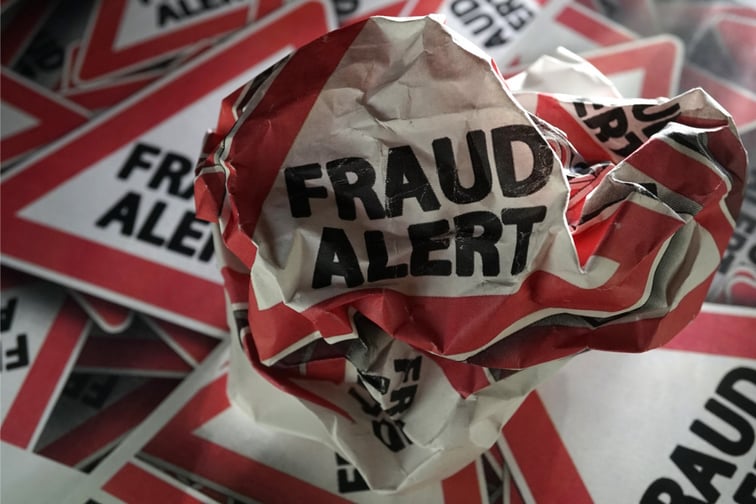

Tens of thousands of UK motorists have been lured into purchasing fraudulent car insurance, attracted by these significantly cheaper policies, which were “either non-existent or missing key details,” leaving them potentially uninsured on the roads, a new investigation by consumer advocate Which? has revealed.
The scam, called ghost broking, runs rife on social media, with dodgy companies claiming that they can find “unbeatable” motor insurance rates for drivers struggling to get affordable cover.
Data gathered by Which? from the Insurance Fraud Bureau (IFB) showed that insurers have reported more than 21,000 policies that could be connected to the scam last year. The group noted, however, that the actual figures could be much higher as some victims might be too embarrassed to inform authorities or were not aware that their quotes have been manipulated.
Ghost brokers mostly target young and inexperienced drivers, who face the steepest car premiums, and other vulnerable groups such as non-native English speakers.
They typically operate online using various social media channels, pretending to be legitimate insurance brokers.
One of the most common tactics these fraudsters employ is to trick drivers into purchasing genuine car insurance policies but doing so using bogus information. Ghost brokers manipulate some of the policyholder’s personal details – the driver’s address or claims history, for example – to reduce premium prices. They then forge the paperwork before selling the policies to unwitting victims. Because these are real policies, they will appear against the vehicle on the Motor Insurance Database (MID).
However, a closer inspection of the policy documents, which will definitely happen if a motorist tries to make a claim, will reveal that the insurance policy was obtained under false pretences, which, in turn, has serious legal ramifications.
Read more: Beware of ghost brokers, IFB warns drivers
Drivers caught carrying illegitimate policies can make them potentially liable for fraud, especially if the documents were found to have false personal information aimed at cutting insurance costs. Motorists are also at risk of receiving penalties for driving uninsured.
Even people who have never bought a policy from these fraudsters can be affected by the scam. Ghost brokers often use the personal details of real individuals to forge documents. This means even if a motorist has steered clear of insurance scammers, their personal information may still be stolen and utilised as part of an elaborate fraud scheme – something that has been seeing a huge spike recently.
Data gathered by Which? from fraud prevention non-profit Cifas revealed that insurance-related identity fraud cases rose by 66% between 2020 and 2021, with those aged 51 to 60 years old the most likely targets.
The scam cost UK motorists an average of £1,950 last year, up 38% from the £1,209 average when Which? did a similar investigation in 2020.
Action Fraud, the country’s national reporting centre for fraud and cybercrime, said it recorded 517 cases of ghost broking in 2021, with total losses reaching £1 million. The agency admitted that the figures were likely higher as not everyone who bought a fraudulent policy is aware that they have done so.
The Online Safety Bill, which was drafted last May, is still working its way through the government. Once passed into law, it will place stronger requirements on internet platforms to protect users against online risks, including scams and fraud.
In the meantime, Which? has advised drivers to practice due diligence when dealing with insurance middlemen plying their services via social media. Here are some things the consumer advocacy group recommends that motorists check to ensure they do not fall victim to ghost broking scams.
To arrange insurance, an individual or company needs to have authorisation from the Financial Conduct Authority (FCA).
“If you cannot find evidence that [a broker] is regulated, avoid doing business with it,” Which? advised.
Most companies can be reached in a variety of ways, including a landline number. If a seller will only interact via mobile phone, social media, or a messaging app – such as Snapchat or WhatsApp – it is often best to steer clear.
According to Which?, a genuine company should be able to explain, in understandable terms, how it can net motorists a bargain. If a broker is guarded or vague about what they do, drivers should take that as a red flag.
Getting insurance paperwork out of the blue is often a sign that a person’s private details were compromised.
“If an insurance company is writing to you about cover you did not take out, it could mean someone is basing a fraudulent policy at your address. Contact that insurer to let [them] know,” Which? suggested.
The consumer group also advised motorists to check their credit reports regularly. Searches or activities involving unfamiliar companies could indicate that someone is using their details to buy financial products such as car insurance.
For those who have received suspicious correspondence from an insurer relating to a policy that they do not own, it is possible that fraudsters have used some of their personal details to obtain cover.
If this happens, Which? advised victims to follow these steps:
